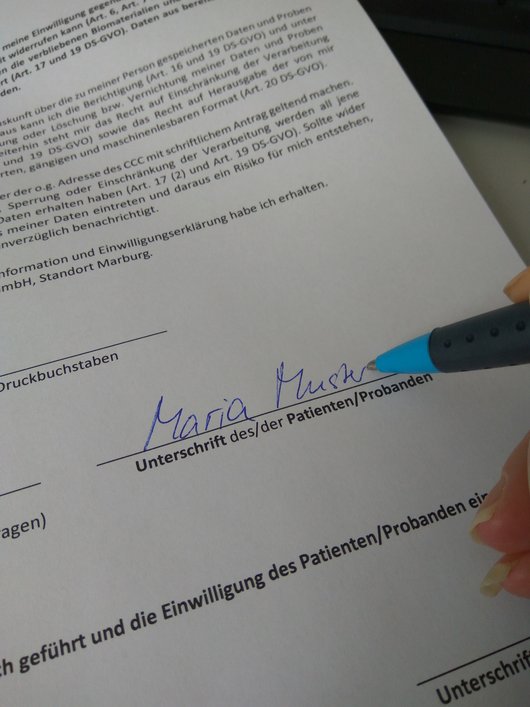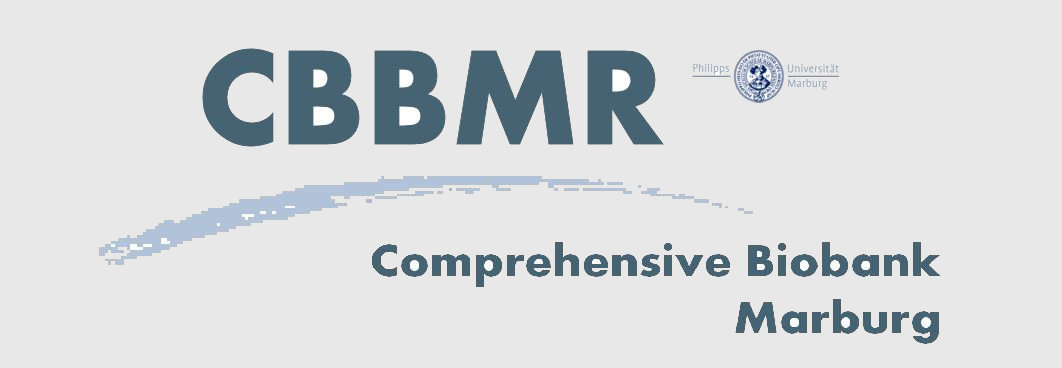Information for donors - What should you know as a donor?
Welcome to the information page of the Marburg Biobank for donors!
On this page we would like to inform you as a potential donor about the goals and the working methods of our Marburg Biobank. We, the team of the Marburg Biobank, are also available for further questions.

The basis of valid medical research is high quality human biomaterial, which is well characterized. The medical care in the clinics of the University Hospital Marburg guarantees excellent examination and therapy procedures, in which biomaterials taken from the patient are thoroughly clinically and pathologically characterized. Often, residual material remains after diagnosis, which is of inestimable value for medical research. Without a central, quality-assuring collection, processing and storage, these biomaterials are irretrievably lost. However, medical research is dependent on high-quality human biospecimens, because only the examination of the human being itself can ultimately open up new paths in the development of new, tailor-made diagnostic and therapeutic procedures.
If you are treated at Marburg University Hospital as an outpatient or inpatient, you can give your consent for a biosample donation. Only then will your biosample be stored safely and sustainably in CBBMR and be used for research. The clinics of the University Hospital Gießen and Marburg (UKGM GmbH), Marburg site, are available as partners for the recruitment of donors and the collection of donor materials.

The Marburg biobank mainly collects tissue and liquid samples. For specific questions, other biosamples such as stool, hair or nail samples are also stored in the biobank.
The CBBMR tissue bank, the heart of the biobank, is made up exclusively of residual materials that are taken during invasive interventions and are otherwise discarded after findings in pathology. The professional processing and division of the residual tissue directly after diagnosis makes it possible to preserve these materials, which are so valuable for research, and to make them available for scientific processing.
Our biobank also stores so-called punctates, which are removed during certain invasive procedures. Only residual material enters the biobank, so that only the diagnostically required amount is collected from the donor.
At the same time, we ask you to donate an additional 23 ml blood sample, because recent research results show that many chronic and acute diseases can be detected by biomarkers in the blood. This opens up new ways of detecting certain diseases at an early stage and thus significantly improves the chances of curing the respective disease. The blood sample is also withdrawn as part of routine blood collection.

A high sample quality is guaranteed by short distances in the clinic. Tissues and punctates taken from the patient in the UKGM clinics are quickly transported to the pathology department for diagnosis. After being examined by the pathology staff, they are prepared for low-temperature storage by the biobank personnel. Liquid samples are taken directly to the biobank laboratory where they are prepared for cryo- storage.
Your samples will be stored in the biobank until they are issued for research projects to improve the diagnosis and/or therapy of your disease. Biobank Marburg guarantees that samples will only be issued for research projects that have previously been positively reviewed by the Ethics Committee of the Philipps University of Marburg.

CBBMR wants to support research in the best possible way with clinically well characterized biosamples, because this is the only way to select the appropriate samples for the respective research question. In addition, many other factors, such as underlying diseases and co-morbidities, must be taken into account when evaluating the research data obtained. In order to be able to guarantee this, clinical data of our donors such as pathological findings, further diagnoses and therapeutic measures as well as treatment-relevant characteristics (e.g. sex, year of birth) are stored pseudonymized in CBBMR.

CBBMR uses a secure software system for data storage, which guarantees the protection of donor and sample data through a multi-level so-called pseudonymisation. This means that all data and samples are archived in an encrypted and secured form so that no unauthorized person has access to your data and samples. Likewise, the use of data and samples within the scope of research projects is exclusively in encrypted form.
Our biobank system is protected in the best possible way because it has been established in the core network of the central data processing of the hospital. This means that our data is protected from the outside world by a multiple-security firewall. Within the hospital, only authorized biobank employees have access to this password-protected system.
Find out more under Data Protection in CBBMR!

Your attending physician will advise you of the possibility of donating tissue and fluids to the Biobank prior to a possible procedure. In an informational conversation, the doctor will explain the procedure to you in detail and answer your questions. Your participation is completely voluntary and takes place through your signature on the declaration of consent, which will be handed over to you by your treating/receiving physician after the informative meeting. Further information can be found in our patient brochure.
If you decide not to participate, this has no influence on the intended diagnosis and treatment of your illness. In addition, you have the possibility to cancel your participation at any time.

Yes, but only if you as parents agree to the donation. In order to inform the little patients about their donation, CBBMR has developed a child-oriented patient brochure, which clearly describes the course of the sample. In addition, we have a child-oriented patient information leaflet for each age group, which your child can also sign. Of course, only parental consent is legally binding.

You can revoke your consent to the use of your biosamples and data at any time without giving reasons and without adverse consequences for you. In the event of a revocation, you can decide whether your biomaterials should be destroyed and the associated data deleted, or whether they may be used in anonymous form for further research projects. However, as soon as the reference of the biosamples and the other data concerning your person has been deleted, destruction is no longer possible. In addition, data from analyses already carried out cannot be removed. We would like to point out that, despite revocation, a later allocation of the genetic material to your person via other sources can never be completely excluded.

Personally, you cannot expect any immediate benefit or benefit for your health from the donation of your samples and data. The results are intended exclusively for research purposes. Personal feedback of results from the examination of biomaterials is not intended. However, you can inform yourself at any time about research progress and study results obtained with biomaterials from CBBMR on the website www.cbbmr.de.


